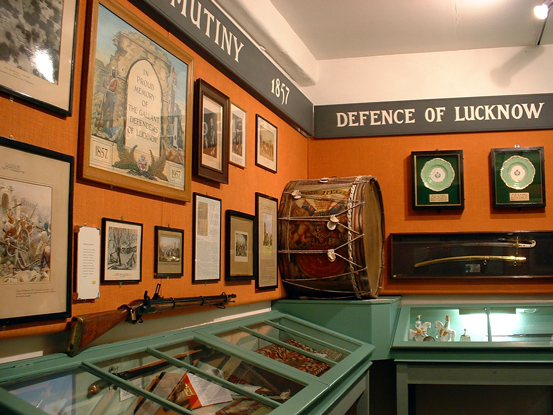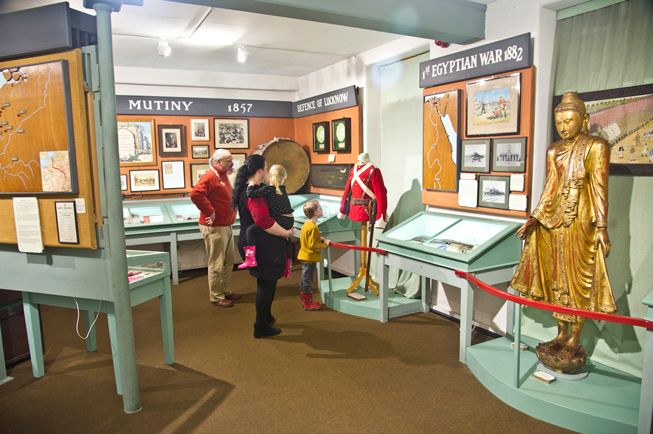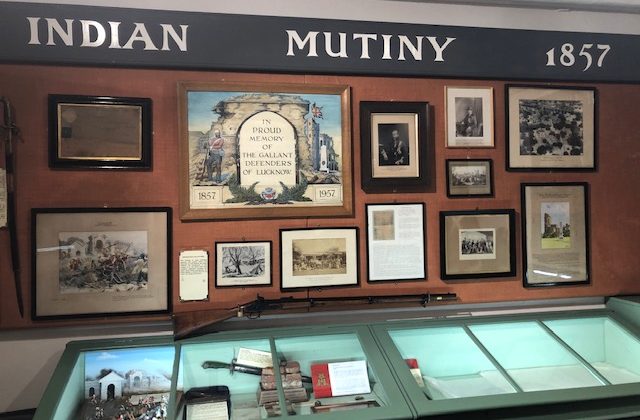As a Trainee Curator at Bodmin Keep, one of my recent tasks was to rewrite some of our old text panels which tell the stories of our collection. The museum galleries cover conflicts from 1702-1945, and often look at history with a colonial bias which places Britain as the ‘good guy’ and ignores the negative impacts of empire. Because it includes conflicts that I’d never heard of like the War of the Spanish Succession (1702-13) and the Seven Years War (1756-63), I had to do a lot of research to even know where to start!
It’s incredibly difficult to tell a story that is completely unbiased, so I have prioritised acknowledging marginalised people who have been cut out of the narrative, wherever possible. For instance, in the Treaty of Utrecht, War of the Spanish Succession, Britain was given a monopoly over the South American slave trade. This asiento system was an agreement between Spain and another country to supply enslaved people for the Spanish colonies in exchange for goods such as gold and silver. An estimated 450,000 African people were enslaved under the asiento system from 1600 to 1750. I’ve improved my ability to spot these neglected stories, as whenever cotton or plantations are mentioned, it’s important to look for the usually enslaved people behind them.

Using certain words can completely change how history is told and influence the understanding of who was at fault. The museum’s narrative on the Anglo-Egyptian war is another example of colonial bias. Our original panel called it the ‘Egyptian War’, instead of the more commonly used the ‘Anglo-Egyptian War’, which gives equal weight to the two countries who fought. Yet another name for it is the ‘British Conquest of Egypt’. This might seem like an exaggeration, but that is literally what happened. European bankers loaned huge amounts of money to Egypt for infrastructure projects, then when they went bankrupt, France and Britain took control of the country’s ports, treasury, customs and railways. When there was a nationalist uprising, Britain bombed Alexandria and took control of the country.
There is immense power in who tells history and how. This is illustrated in the varying explanations of the same historical events below.
“In the 1870s Egypt, through mismanagement and corruption, lurched towards financial collapse and political instability. Britain and France installed a commission to supervise Egypt’s government” (British Battles, Battle of Tel-el-Kebir). This makes Egypt look incompetent, and casts Britain and France as helpful supervisors.
“The British remained in Egypt to ensure stable and cooperative government” (National Army Museum, Egypt and the Sudan). Similarly, the British just wanted to help Egypt.
“Alexandria broke out in riots, leaving several Europeans dead. The British retaliated, the Egyptian army mounted rebellion, and by August, Tewfik’s government had collapsed” (BBC, Egypt and the Sudan). Of the examples this is the worst, as it actually changes the order of events, and seems to put the blame on Egypt as a lawless country. In reality, Alexandria rioted because there was a fleet of British and French warships waiting outside the city, which escalated tensions.

We are a British military museum, with historical narratives that are often biased towards the British Empire. With Black History Month as well as the Black Lives Matter protests this year, it’s up to us to change those biases and tell other stories.
Katie Sawyer, Trainee Curator

Sources:
Available at: https://www.britishbattles.com/war-in-egypt-and-sudan/battle-of-tel-el-kebir/ (Accessed: 20 October 2020).
Available at: https://www.nam.ac.uk/explore/egypt-and-sudan (Accessed: 20 October 2020).
https://www.bbc.co.uk/worldservice/specials/1624_story_of_africa/page37.shtml (accessed: 20 October 2020).

